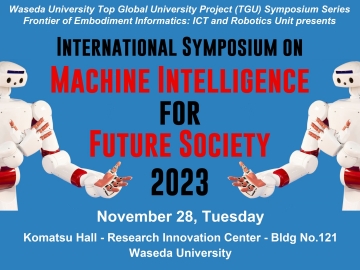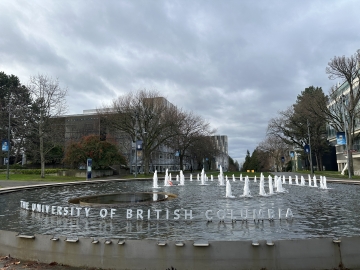The Center for Positive/Empirical Analysis of Political Economy supports Waseda students who study abroad through the international network QTEM (Quantitative Techniques for Economics and Management). Below is final report from the student who has studied at Amsterdam University (2022 Autumn semester) and Tilburg University (2023 Spring semester).
FUJIOKA, Kosuke Graduate School of Economics M2
My name is Kosuke Fujioka and I am a master’s student in the Graduate School of Economics at Waseda University. In the spring semester of 2023, I went on an exchange program at the University of Tilburg in the Netherlands as part of the QTEM program, so I would like to report on my activities there.
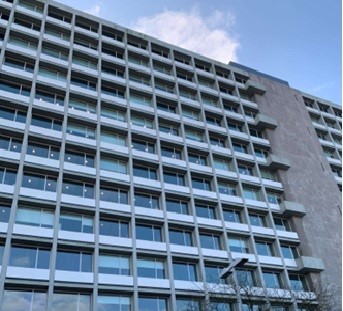
Campus of Tilburg University
The QTEM program specializes in the study of empirical analysis, and one of its attractions is the opportunity to participate in courses at a number of partner universities that excel in economics, including Tilburg University, where I studied abroad this time. I had also studied at the University of Amsterdam (UvA) in the Netherlands as an exchange student in the fall semester of 2022, so I made the somewhat irregular choice to study at two different Dutch universities in consecutive semesters. Because the semesters of both graduate schools overlapped slightly, I was a bit busy at the beginning of the semester in Tilburg, but thanks to my experience in Amsterdam, I adapted well to daily life.
Below are the courses I actually took while I was there.
Data Science Methods
We learned data analysis methods in the intersection between econometrics, statistics, and machine learning. The last part of the course, “Double Machine Learning,” was difficult to understand, but I found it interesting.
Time Series and their Applications
We learned about econometric methods using time series data. The first half of the lecture focused on ARMA models, while the second half dealt with more advanced areas such as VARs and Kalman filters. The students work on group assignments in pairs every week, and it seems that the university always takes the initiative in providing opportunities to learn in cooperation with other students, not only in this class but also in other classes at Tilburg.
Dynamic Economic Models
This class dealt with Dynamic Programming in the economic field. The number of students was small, so I was able to receive extensive instruction. We learned not only the theory of dynamic programming but also estimation methods and simulation using MATLAB for
assignments.
Seminar Data Science for Economics
We learned empirical analysis methods using recent big data in a practical way. The class was very cutting-edge in its style: not only general machine learning, but also methods using tensors and deep learning, etc. The class materials were written in Python, and the assignments were submitted via Git Hub. On the other hand, the lecture also provided a detailed explanation of the contrast between modern analytical methods and existing, relatively old econometric methods, as well as the story that exists between the two, and I eventually learned the difficulty and depth of empirical analysis.
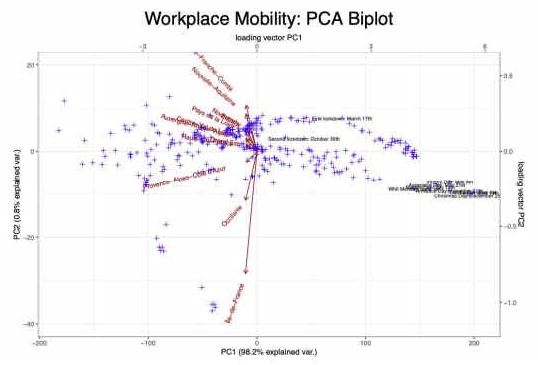
There was a unique assignment in the Data Science Methods to analyze the mobility shift in each region in France when the French government implemented the lockdown.
The students in Tilburg were so smart that I was struggling to keep up with them. Supposedly, what they particularly excelled in was their proactivity and self-discipline in learning. They are able to immediately ask questions about what they do not understand in class and strive to resolve their doubts immediately. On the other hand, They also value their leisure time and seem to consider time spent with friends or alone for reflection as an integral part of their lives above all.
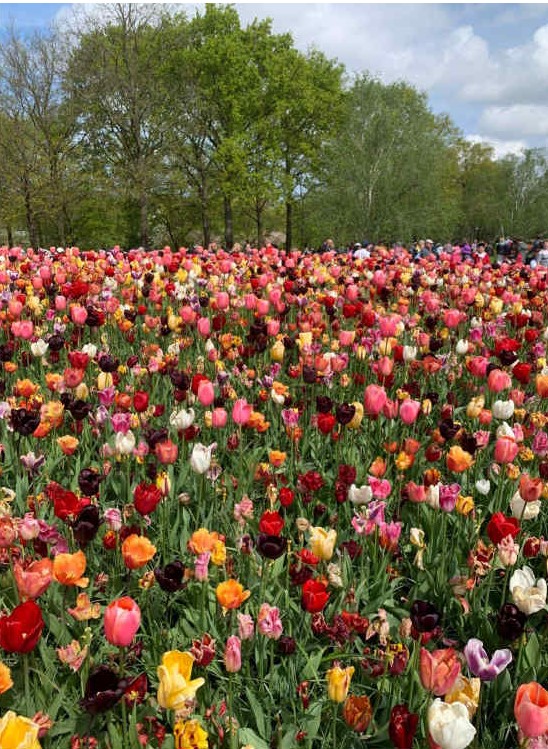
Flower Garden in Spring
The Netherlands in early spring was very pleasant and relaxing, even with the busy schedule of classes. When I had a little free time, I often traveled to places in the Netherlands.
I have already returned to Japan and am enjoying my life in Japan, and I have been frequently reminded daily of the differences between the Japanese and Dutch lifestyles. I have taken a number of interesting courses with local students during this study abroad program, and I have learned how wonderful it is to work hard at learning what you want to learn. I believe that this experience will be used to the fullest in the future as my source of courage to face complicated and difficult issues.
Finally, I would like to express my sincere gratitude to my thesis advisor, Professor Yoshio Kamijo, who supported me in writing my master’s thesis remotely during my study abroad, and tothe SGU Center for Empirical Politics and Waseda University who supported me to the utmost. I will continue to do my best so that one day I myself can also encourage someone else to have a fruitful experience.

